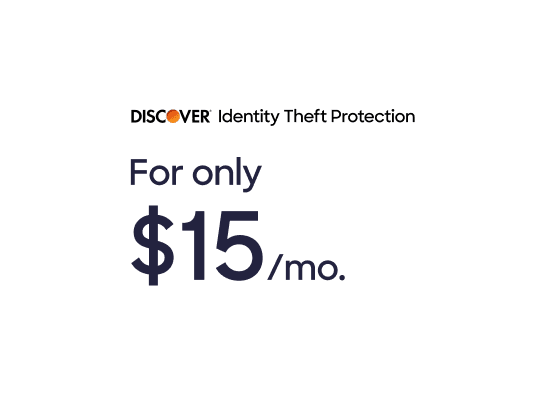For most of us, the trash seems like a black hole from which discarded items never return. But for identity thieves, garbage and recycling bins are veritable treasure troves of invaluable information.

5 Ways to Keep Your Identity Safe from Dumpster-Diving Thieves
Key points about: dumpster diving and cyber security
-
Identity thieves can access your information in several ways, including going through your trash to find important documents and discarded electronics.
-
Before you discard anything, make sure you shred any documents, wipe the hardware off all electronics, and avoid tossing sensitive information in public receptacles.
-
Discover® Identity Theft Protection offers fraud security for all Discover® Cardmembers.
Bank and credit card statements, pre-approval offers, utility bills, letters from the IRS, and a whole host of other items that arrive in the mail every day seem fair fodder for the trash. But, in reality these documents could contain sensitive information including bank account, credit card, and Social Security Numbers. In the wrong hands, this information can mean your money and identity security are, well, trashed.
Luckily, there are five simple ways to keep your identity secure:
1. Shred it
Making your information illegible to would-be thieves is one of the best ways to help prevent identity theft. You should tear up any documents that contain private financial information like credit card statements or solicitations. Whether you use a professional shredding company, a personal shredder, or your bare hands and brute strength, rip it, cut it, shred it, or tear it before you toss it.
2. Take it with you
It may seem convenient to leave a gas station or ATM receipt in the trash receptacle there rather than put yet another piece of paper in your wallet. But identity thieves can transform these scrap piles into money—your money—and your identity. So be sure to take it with you and discard it responsibly once you get home.
3. You’ve been pre-approved! …for a higher risk of identity theft
Sure, a pre-approval for a new credit card or a personal loan might be flattering or even cause for daydreams. But these offers carry a cost with them. Namely, a higher risk of identity theft. According to the US Department of Justice, “criminals may retrieve them (pre-approvals) and try to activate the cards for their use without your knowledge.”
Shredding such offers is just as important as destroying bank statements. You can also opt out of pre-approvals to further reduce your risk of identity theft
4. Destroy E-junk
Hurray! You finally got that new laptop, phone, or tablet, and the old one is headed for the donation bin. But before you part with any electronics, be sure they’re completely devoid of any and all information. And this doesn’t just mean deleting your files. The Federal Trade Commission suggests backing up your information, erasing your hard drive, and disposing of your computer.
This information could include website passwords to your bank accounts or credit cards. You might have your medical and prescription information saved or old tax returns stored in forgotten folders. Identity thieves could easily exploit this and other information.
To ensure your hardware is completely wiped, you might need to install a program from the computer manufacturer that will transfer any and all data from the old technology to the new, or, you may want to consult a licensed expert to ensure your piece of technology is really safe to let go.
5. Keep informed about your information
Identity theft is no laughing matter, but that doesn’t mean you have to live your life in constant worry. Many financial institutions monitor your information to keep it safe from identity thieves. If you’re unsure whether you’re covered for fraud, it may be a good idea to check with your credit card company.
Did you know?
For Discover® Cardmembers, Discover® Identity Theft Protection lets you know if your Social Security Number and other personal information you add is on one of thousands of dark websites we monitor, if accounts are opened or updated in your name at any of the thousands of financial institutions we monitor daily, if someone is using your Social Security number to create new identities at Experian, and much more, all with 100 percent U.S.-based fraud resolution experts and up to $1 million in identity theft insurance for covered losses.1
Next steps

No impact to your credit score

See rates, rewards and other info
You may also be interested in
Was this article helpful?
Was this article helpful?
- Identity Theft Protection:This product can only be agreed upon, purchased and delivered online. It is optional and voluntary. Key changes include: New accounts, credit inquiries, address changes, potentially negative information such as delinquencies, new public records Identity Theft Insurance is underwritten by insurance company subsidiaries or affiliates of American International Group, Inc. (AIG). 175 Water Street, New York, New York 10038. Please refer to the actual policies for terms, conditions, and exclusions of coverage. Coverage may not be available in all jurisdictions.
- Legal Disclaimer: This site is for educational purposes and is not a substitute for professional advice. The material on this site is not intended to provide legal, investment, or financial advice and does not indicate the availability of any Discover product or service. It does not guarantee that Discover offers or endorses a product or service. For specific advice about your unique circumstances, you may wish to consult a qualified professional.


